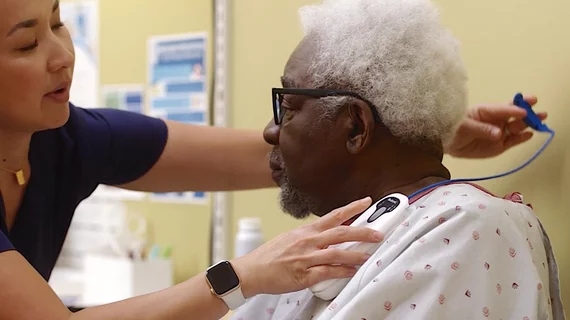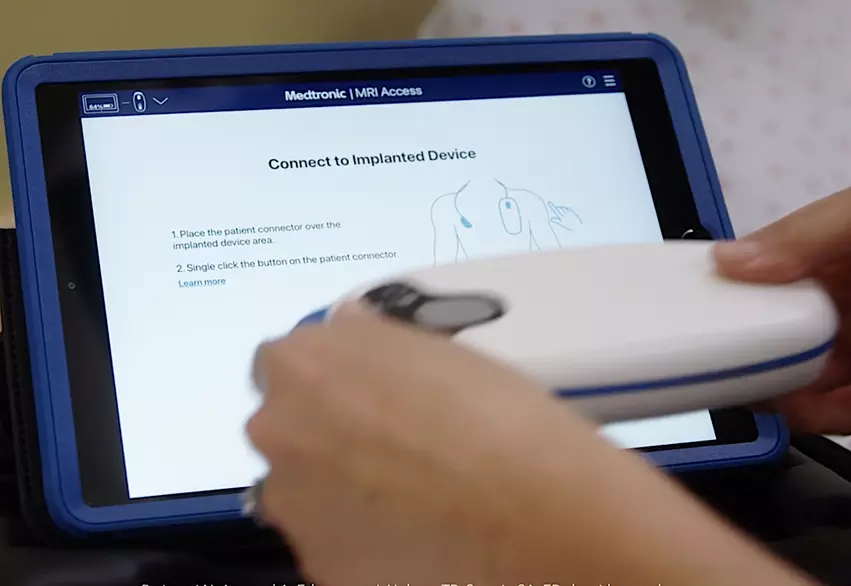Medtronic streamlines MRI screening, scanning for patients with implanted cardiac devices
About one-third of patients with a pacemaker or implantable cardioverter defibrillator (ICD) experience cancellations and delays when seeking magnetic resonance imaging (MRI) scans.[1] This is due to the cumbersome process of confirming the implanted device is MR conditional to allow a scan and then radiology coordinating with cardiology turn the device into 'safe mode' during the exam. This increases workload burden and expenses associated with device checks prior to MRI scans.
To streamline the workflow, Medtronic just launched its MRI Care Pathway, a new system that can streamline the process of completing MRI scans for patients with Medtronic MRI-compatible cardiac devices. Comprised of an app and website, the company said it can reduce or eliminate delays in the MRI scan workflow, giving patients timely access to the MRI scans they need. The system helps clinicians quickly verify whether a patient’s cardiac device is MRI-compatible, and it helps MR technologists automatically set the appropriate cardiac device parameters for a patient’s device both before and after the scan is complete. The process uses an intuitive tablet interface.
Research shows that 50-70% of all patients with a pacemaker or ICD will require an MRI during their lifetime.[2,3]
“While this technology has offered a huge improvement to my clinical workflow, its impact on my patients' experiences when getting an MRI has been more important,” Peter Robertson, MD, an electrophysiologist at Ascension Saint Thomas Heart in Murfreesboro, Tennessee, said in a statement. “It allows rapid assurance at the time of the MRI that the scan can be completed safely. The patients can be confident they’re getting the right care, at the right time, and at an imaging center prepared to provide correct care for their device.
Medtronic's MRI Care Pathway can streamline the process of completing MRI scans for patients with Medtronic MRI compatible cardiac devices. The tablet-based system walks the radiology technologist through the process of verifying the device in MR conditional, allows them to set the device to an MRI safe mode for the scan, and the return the device to normal operation without the need for additional scheduling with cardiology.
The MRI Care Pathway includes built-in safety features to alert MR technologists if an MRI scan cannot be safely performed. The app is compatible with the Medtronic portfolio of SureScan electrophysiology (EP) devices, including pacemakers, cardiac resynchronization therapy devices (CRT), ICDs and insertable cardiac monitor systems.
Clinicians can use the website to verify whether a patient’s Medtronic device is MRI compatible. If the patient’s Medtronic device is compatible, the patient’s care team can immediately schedule the MRI appointment. At the appointment, the MR technologist can use the app to automatically set the appropriate device parameters for a safe MRI scan. Following the scan, the MR technologist can use the app to return the patient to their cardiac device’s pre-scan settings. This pathway can enable increased flexibility and efficiency, allowing for timely patient access to MRI scans.


